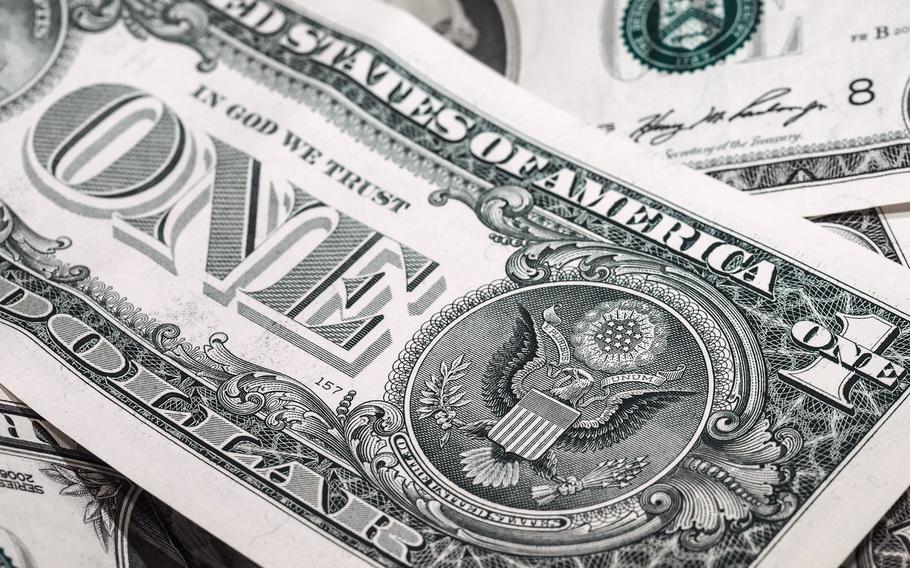
Post allowance is determined on currency fluctuations and the cost of daily goods and services in a foreign country. (Pixabay)
CAMP HUMPHREYS, South Korea — Civilians working for the U.S. government in South Korea will see 5% less post allowance in their next paycheck as the dollar continued its climb against the won.
The change in post allowance — the equivalent of the tax-free cost-of-living allowance received by service members and their families — took effect May 7 and will remain in place at least until May 21, according to the State Department’s website.
Post allowance rates in South Korea are based on an employee’s duty station and are between 15% to 25% of a worker’s annual spendable income, which is calculated by salary and family size.
Someone who earns $60,000 and lives overseas with a spouse and one child will have a spendable income of $34,900, according to the State Department’s annual spendable income chart released on Jan. 1.
Prior to the change, post allowance rates in South Korea have hovered between 20% and 30% of an employee’s annual spendable income.
The drop comes as the dollar gains strength and purchasing power against the won. On May 1, a dollar was worth 1,340 won, up from a six-month low of 1,222 won on Feb. 1.
Federal employees in foreign countries receive post allowance if the cost of goods and services in those countries is at least 2.5% higher than that of Washington, D.C., according to State Department regulations.
Post allowance is determined on currency fluctuations and the cost of daily goods and services in the foreign country, such as food, tobacco and alcohol, clothing and medical expenses.
Ken Baker, a logistics assistance representative for the U.S. Army Materiel Command at Camp Humphreys, called post allowance an essential part of his income.
“It’s an impact,” Baker said Friday at Humphreys. “It hurts us any time they take away money.”
Baker, who has lived in South Korea for 20 years, mentioned price hikes at the base commissary and local grocery stores.
“We pay quite a bit just going for food products,” he said. “It’s not cheap.”